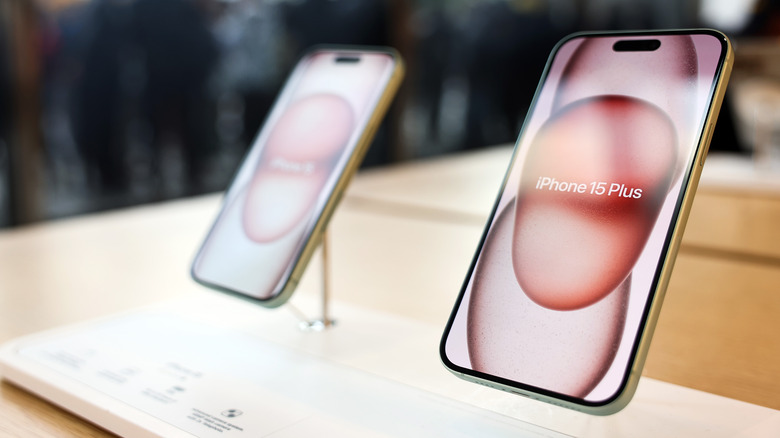Samsung Joins Google In Throwing Shade At iPhone's Green Text Bubbles
With a new video released on Samsung's YouTube channel, the company is joining Google in a public campaign to compel Apple to adopt Rich Communication Services (RCS). If Apple were to join other companies in using RCS, a cross-platform messaging protocol, it would — among other things — get rid of the green bubbles that signify to an iMessage user that they're communicating with an Android (or otherwise non-Apple) device.
While seemingly a superficial change, the "green bubble" criticism has taken on a life of its own over the years, especially in the United States where iPhones are especially dominant. That dominance is part of the reason Apple has been reluctant to join RCS.
A core feature of its products — especially the iPhone — is its proprietary iMessage app, which includes several features beyond texting. Because the app is exclusive to Apple products, Apple sees iMessage as an incentive to switch to its ecosystem. The green bubbles (blue bubbles appear when communicating with other iMessage users) are a visual manifestation of this incentive.
Google has struggled to find a proprietary messaging system that has caught on with Android users, and because Android is open source, there are many messaging options available to Android users. With RCS, Google — and other companies that manufacture Android devices, like Samsung — hope to unite these messaging apps under a standard protocol. Eliminating green bubbles, it turns out, is only part of why these companies are pushing RCS.
RCS can do more than get rid of green bubbles
Google's Rich Communication Services is a modern protocol that seeks to replace SMS/MMS, which has been in use for decades. The green bubbles an iPhone user sees in certain chats is indicating not that the message is coming from an Android user, but that it's being sent over SMS.
The more updated RCS protocol allows for many features that SMS doesn't, including read receipts, the ability to see when someone else is typing, and the option to edit, rename, and remove yourself from group chats. With RCS, you can also share high-res photos and videos — a noticeable flaw with SMS between iPhone and Android users.
However, the most important feature RCS has is end-to-end encryption. SMS lacks this, which makes communicating over the platform much less secure. By refusing to adopt RCS, Apple is consequently making texting less secure for all people using SMS to communicate with non-iOS users. While Google and Samsung may use green bubbles as an easy way to goad Apple into adopting RCS, increased security (among other features) may end up being the stronger argument.
It remains unclear if Apple will join RCS, but there's another way green bubbles may go extinct. European regulators are currently debating whether to mandate that Apple offer iMessage on non-Apple devices under the Digital Markets Act, which requires interoperability between "core platform services." For now, though, you can expect more campaigns like Samsung's most recent video.
